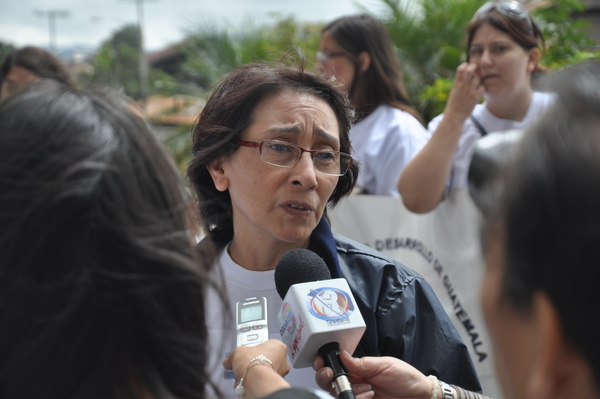
© AFP/Getty Images
Enormous crowds throng the streets of Tehran and great excitement is in the air. Commentators note that the June 12 presidential elections in Iran could be the most important election in thirty years. In the previous presidential election of 2005, only a minority of eligible voters actually went to the polls. No one expects that to be the case this year as the country’s young people—most Iranians were born after the Revolution of 1979—are expected to turn out in large numbers.
As Iranians prepare to go to the polls to elect their president, human rights has surprisingly emerged as a subject of debate among the four candidates. Human rights activists wonder whether the unexpected airing of this once-taboo subject augurs a positive change. Is this a step towards a new future of respect for human rights? At the same time Amnesty International has documented the Iranian authorities’ continued brutal crackdown on wide sectors of Iranian society—women’s rights activists, students, journalists and bloggers, labor rights activists, and religious minorities.
It is clear that the exuberance expressed by the Iranian people in this election is an indication of their desire for a change, and especially for an improvement of Iran’s human rights record. The Iranian authorities should not assume that these yearnings for change will disappear after the election is over. Human rights activists hope that the Iranian authorities will recognize that the population’s demand for an end to human rights violations must be taken seriously, but also that allowing Iran’s vibrant civil society and activists to flourish without repression would create tangible benefits for Iran.
That is why human rights activists look to this historic election and allow ourselves to dream of what a future could be if labor activist Mansour Ossanlu who fought passionately for the rights of transit workers, could be released from prison and could work openly and freely to better the lives of the millions of hard-working Iranian laborers. Or if Emaddedin Baghi, one of the great public intellectuals of our time, would no longer face constant government harassment in his efforts to advocate for more democracy and an end to executions, especially the horror of juvenile executions. Or if instead of imprisoning AIDS researchers Kamiar and Arash Alaei on absurd charges of plotting to overthrow the government, these caring physicians would be allowed to carry out their internationally acclaimed work to prevent and treat HIV. Or if instead of arresting and constantly harassing women rights activists such as Jelva Javaheri, the Iranian authorities could champion these feisty and tireless women in their efforts to improve the lives of Iranian women.
All of these heroes are great and inspiring role models not just for Iranians, but for people everywhere in the world. As the presidential candidates accuse each other of undermining Iran’s standing in the world, we know that allowing Iran’s activists to carry out their work free of harassment would bring favorable international recognition and honor to Iran. Will the discussions about human rights in the presidential debates really result in tangible improvements? This will only happen when the Iranian government really listens to those millions of Iranian voices roaring in the streets around the clock.



